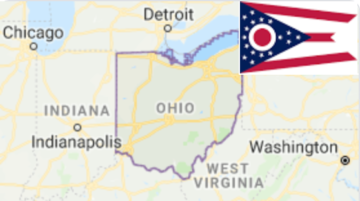The City of Columbus, OH, has allocated $15 million to expand access to digital resources and boost digital participation and skills among residents with limited resources, SmartCitiesWorld reported. The $15 million of American Rescue Plan Act federal pandemic relief money will fund the Digital Equity Action Agenda, an initiative laid out by the Franklin County Digital Equity Coalition. A pledge of $5.2 million from Franklin County brings a joint commitment of $20.2 million to support the Smart Columbus initiative in closing the growing digital divide across Central Ohio.
According to city officials, more than 80,000 households in Franklin County, which accounts for some 10 percent of the population, lack internet access. Furthermore, approximately 66,000 households do not have a computer. By ensuring under-resourced residents have access to affordable, reliable residential Internet, connected devices and digital skills training, the City believes that participation in the digital economy can be inclusively expanded.
“Having reliable internet is as crucial as having access to clean water and electricity,” said Columbus Mayor Andrew Ginther. “Every resident deserves to have full access to affordable, high-speed internet as well as the digital devices that bring these services directly into the home or the palm of your hand – regardless of one’s ability to pay.”
The $20.2 million in joint funding will address several programs intended to:
- increase access to affordable home internet among the 80,000 underserved households;
- distribute 10,000 computers, tablets, smartphones, or other internet-enabled devices to households in need;
- deploy training programs to equip 10,000 residents with new digital skills;
- establish a digital equity ecosystem of 1,500 trained advocates (librarians, school counselors, and social workers) across 100 partner organizations;
- invest $800,000 in competitive grants for digital inclusion programs; and,
- establish an ecosystem of local companies and community organizations to provide low-cost, high-quality devices to residents in need.
Select pilot programs are currently underway and will be deployed at scale in 2024, according to SmartCitiesWorld. Additional pilot programs will be launched and scaled in subsequent years, with full scale operations in place by 2027.





Reader Interactions